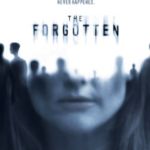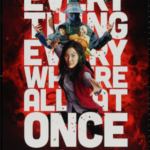After Yang (2021)
Today’s guest review is by Justin Petrisek.
The essay is dead. Writing and creativity are dead. At least, they soon will be according to some critics responding to the recent and rapid advances of OpenAI and ChatGPT.
Artificial intelligence laboratory OpenAI, which boasts Elon Musk as one of its initial investors, made waves with the launch of its text-generating chatbot late last year. The core function of ChatGPT is to mimic human conversation, but it can also write and debug computer programs, write essays, answer test questions, and compose music, lyrics, and poetry. And it’s also completely free to the public (at least for now). The intent, it seems, is to revolutionize our understanding of human creativity and the transmission of knowledge.
With the ability of advanced chat bots to mimic human creativity and style (and to effectively do the ‘thinking’ for you), many are now understandably wondering about its repercussions for society, culture, writing, academia, and technology.
To put it to the test, I asked ChatGPT to write me an essay about masculinity in Hemingway’s novels. Within thirty seconds, I had a competent and painless-to-read essay. If a student were to turn this essay in, I could not reasonably mark them down based on content, nor could I find many flaws in their application of sentence structure, organization, language, or grammar. ChatGPT was able to mimic the knowledge as well as the writing skill of an average to above average college student.
So on one side of the battle seem to stand those who see OpenAI as a tool—”if it can help me communicate more efficiently and effectively, why shouldn’t I use it?” On the other side are those who question the ethical and humanistic impact of such technology— “do we as humans want to be intelligent or simply use machines that can pass for or mimic human intelligence?” As with most dilemmas, the solution will likely be found somewhere in the middle, and I look forward to scientists and engineers being forced to work with language and literary experts in what is sure to be a perfect storm of intellectual, ethical, and technological vortexes. In other words, the scientific and existential worlds will finally have to work together in order to move forward.
The lines between ethics, technology, and humanity become similarly blurred in Kogonada’s 2021 film After Yang. Parents Jake (Collin Farrell) and Kyra (Jodie Turner-Smith) find themselves faced with a difficult decision. Yang (Justin Min), the robotic child they purchased from a reseller for their adoptive daughter Mika (Malea Emma Tjandrawidjaja), has begun to malfunction. If Jake doesn’t get him repaired, Yang will decompose. This will surely upset Mika, who has begun to genuinely see Yang as a sibling and part of the family—they even do family dance competitions together (as evidenced by one of the best title sequences in recent memory).
It’s no wonder, then, that the name of the reseller that Jake must track down in order to repair Yang is “Second Siblings.” (For the record, the original company is called “Brothers & Sisters,” so there is no hiding what these companies are trying to peddle.)
“I don’t want to go to school,” Mika moans. “I want to be with Yang.” Yang, after all, has become her confidant and emotional support, and she questions what life will be like without him. It’s a question, too, that begins to reflect heavily on the audience, as we see Yang’s essential role within the family. At what point does our relationship with or reliance on technology become unhealthy or a crutch? And is technology in any way beginning to replace essential human interactions and experiences that we need to grow, function, and fully live as human beings?
For Mika and her family, Yang is more than a toy, but less than a human. He is purchased, but not disposable. He is full of life, yet not living. The idea of Yang as a living being is bound up in the memory bank discovered in his core—memory banks in “techno-sapiens” like Yang were supposed to have been discontinued due to privacy concerns and their ability to record footage without permission.
As Jake begins to explore Yang’s memories, the divide between technology and humanity continues to fray and fracture. Yang has sought out relationships outside of the family, seemingly trying to make a life for himself and discover an experience which eludes him. And Yang in many ways has replaced Mika’s reliance on her parents. So Jake and Kyra decide that, if Yang cannot be repaired, they should not purchase another techno for Mika.
“We’ve been over-reliant on him,” Kyra says. “We bought Yang to connect Mika to her Chinese heritage, not to raise her.” Somehow the idea of buying another sibling for Mika is strange, but the real curiosity for the audience is found in the ease with which Yang himself is not considered strange, how quickly he becomes embedded in the family, and how seamlessly he seems to establish genuine and intimate human connections.
One such connection comes over a conversation about tea. Yang quizzes Jake, who runs a tea shop, about why he has dedicated his life to the selling of tea. The story that Jake tells Yang says as much about Kogonada’s view of the importance of film as it does about tea. However, Yang understands that he cannot grasp certain realities the way humans can.
“I wish I felt something deeper about tea,” he tells Jake. There is something forlorn in the way Yang expresses this desire. It is not a mechanical fact, something that simply isn’t possible for him. Rather, there is something in his design that makes him wish not to function simply according to his programming but to actually experience what it is to be human.
Though it is never said aloud, one wonders if Jake suspects Yang of being more human than the humans (Jake included) who rely so heavily and without a second thought on technology.
In its greatest moments, After Yang forces the audience to grapple with that same question: what does it mean to be human? Perhaps it’s a question that humanity will always grapple with, whether in a technological society or not. But how ironic would it be that, in an age when technology seems to be constantly erasing and replacing human interactions, that technology itself would force us to reengage with this existential question.

As proven by OpenAI and ChatGPT, we are only beginning to glimpse technology’s ability to imitate human intelligence and creativity. But with these new waters come new and increasingly complex questions of ethics and humanity. The question is no longer as simple as, “Is this a life, or isn’t it?”
Now we must grapple with the repercussions of imitated humanity and knowledge. Google knows. ChatGPT can write. How long before genuine human thought is circumvented and outsourced? And if technology can think for me, write for me, know for me, at what point do I become less human?
The nature of humanity is no longer a scientific question alone. As is the case in After Yang, it’s becoming, once again, an increasingly existential one. What happens after, we will see.
After Yang is written, directed, and edited by Kogonada. The story is adapted from Alexander Weinstein’s short story, “Saying Goodbye to Yang,” and has an MPAA rating of PG for some thematic elements and language.
Justin Petrisek is a writer from Virginia. He received his M.F.A. in creative writing and M.A. in literature from George Mason University as well as an M.A. in theology from the Augustine Institute.













